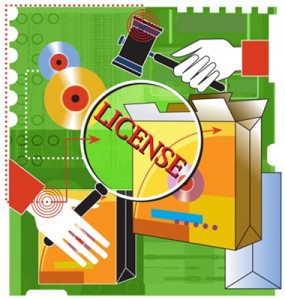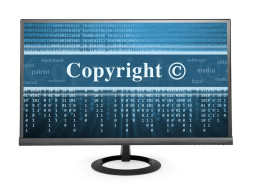This post continues the conversation on anti-piracy measures and laws started previously—but now brings the issue into a local context. Just as is happening in the US and across the world, the media landscape in Jamaica is changing. More people are accessing content online, whether through streaming podcasts, downloading movies or music, or viewing videos. More people are sharing content freely, which brings with it consequences for the creators of this content. In this age of the Internet, what rights do Jamaican filmmakers, musicians, and other content creators have when it comes to protecting their work? What measures will be implemented in order to regulate content on the Internet?
The Broadcasting Commission of Jamaica’s Role in Addressing Piracy
The Broadcasting Commission of Jamaica shares interest in this particular issue with organizations such as JARIA, which represents the interest of the Reggae Industry, and JIPO, which protects intellectual property of content and media creators. As the entity responsible for broadcasting content regulation in Jamaica, it has a vested interest in seeing more indigenous content produced for TV, radio, and online. These industries cannot succeed, however, if content is stolen and/or replicated, or if it is made available for free without the consent of the creator.
There’s no simplistic way to fight Piracy. Therefore, there needs to be collaboration of three parties: creators, who need to be more aware of the rights available to them through the laws that protect their work; policy-makers and organizations such as the Broadcasting Commission, which are responsible for assessing and making recommendations to update media laws based on a changing media framework; and the public, which needs to understand the value of intellectual property, and to play its part in accessing local content from lawful channels.
The Need for Education, Awareness and Discussion
Copyright is an exclusive right accorded to creators of original works of, art, music, media, and so forth, which enables them to determine how their work should be used. Under copyright law, artists are able to protect their intellectual property—i.e., their works, ideas, or inventions—through the ability to either authorize or prohibit certain acts in relation to their work. Copyright law protects original work from being pirated, a term used to describe the unlawful duplication of an original work for personal gain without the consent of the rights owner.
Under the Copyright Act of Jamaica 1993, literary, dramatic, musical and artistic works, including sound recordings, films, broadcasts and cable programmes, poetry and plays (whether recorded or written), lyrics, and other original creations are protected. This means that copyright infringers can face fines of up to $100, 000 or imprisonment of up to 2 years, depending on the scope of offending activity. All original works are eligible for copyright without needing to register or pay a fee. More information on copyright law, including how to report acts of copyright infringement or piracy, are available herehttp://www.jipo.gov.jm.
t is also worth noting that, due to the Berne Convention—an international treaty for copyright protection—Jamaicans are able to protect their work against copyright infringement which may occur in the United States, Canada, and the European Union, among others countries. In order for us to have a regulated media landscape, it is important that all parties involved in the creation of media have an awareness of how their work might already be protected under Jamaican law and international treaties.
It is also important, however, for the Jamaican public to play their part in regulating its own industry. In our society, with music available so freely—on roadsides, online for download—we never stop to consider how this may be affecting the man or woman who makes his living by selling his ideas, or his intellectual property. We tend to see the end product—the song, film, or TV show—rather than appreciate the process. This is already having disastrous consequences on our local talent, many of whom migrate to other countries with more appreciation for the value of intellectual property.
The Modernization of Jamaica’s Media Policy
Piracy and copyright infringement on the Internet cannot be discussed without making mention of Jamaica’s media policy. New media brings with it new risks and consequences, many of which are not addressed by the Broadcasting Radio and Re-Diffusion Act of 1949. In 2011, the Broadcasting Commission of Jamaica made its recommendations for the modernization of Jamaica’s media policy—the Jamaican Electronic Media Regulatory Framework. This framework seeks to encourage the establishment of licensed internet programming, taking the form of Internet TV and radio programmes, for example, which would provide content creators with legitimate channels through which their content might be broadcast—and from which they would be able to gain due compensation.
(2277)







